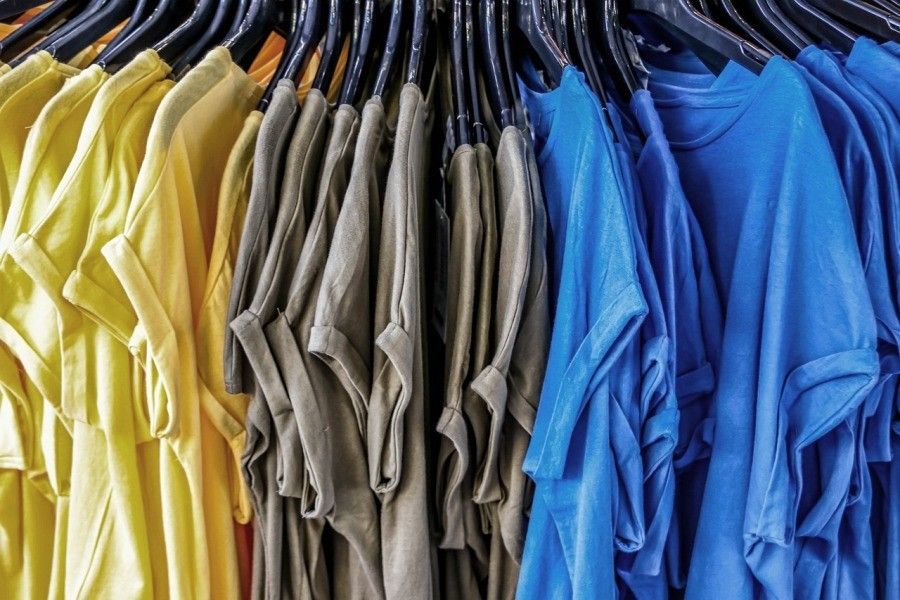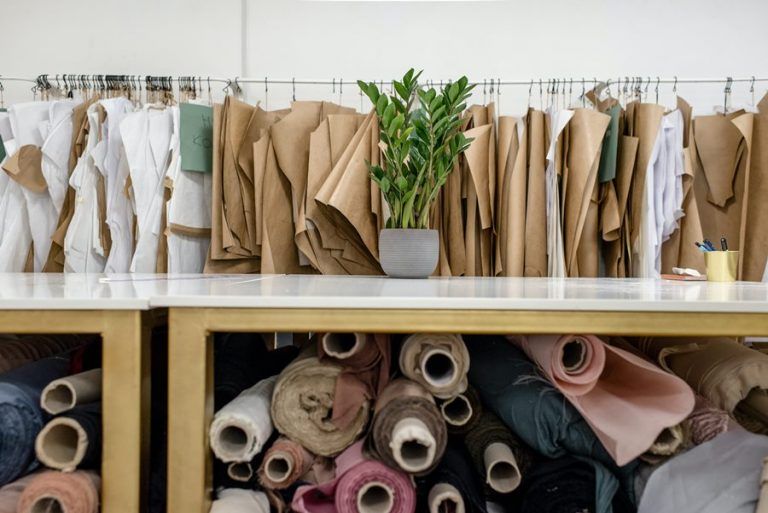Will the affair with the Veclaim brand affect Polish clothing companies?

Wpis dostępny jest także w języku:
![]() polski
polski
The clothing brand Veclaim, founded by fashion blogger Jessica Mercedes, prided itself on the fact that it produces its clothes exclusively in Poland. However, a few days ago it turned out that Veclaim shirts are not sewn from scratch in Poland but are made on the basis of Fruit of the Loom brand t-shirts. These in turn are produced in Morocco. Will the brand’s image crisis have wider repercussions for Polish clothing companies?
Semi-finished products from Morocco instead of T-shirts sewn in Poland
As it turned out, part of Veclaim T-shirts under the label with the company’s logo had remnants of the Fruit of The Loom labels. This means that contrary to the company’s assurances, the entire production process did not take place in Poland. In the statement issued by Jessica Mercedes we can read that Veclaim “decided to test a new model of cooperation on a small part of the collection”, which is the purchase of semi-finished clothes from a foreign partner to create final products. It has not been revealed whether the t-shirts were bought directly from the company or maybe through another sales channel such as Allegro.
According to Mercedes, Fruit of The Loom is “the best basic on the market, with history and quality”. The whole rest of the process of making shirts, according to the statement, is to take place in Poland. It means dyeing, washing, cutting out, printing or ageing. The company hides itself by the fact that the cooperation with Fruit of the Loom was a pilot project and communication errors were made. However, the main strength of Veclaim remains the unique design of its products, it says.
Ethical production and local origin
The scandal with the Veclaim brand has highlighted several trends that have recently evolved in the clothing and footwear market in Poland. The coronavirus pandemic has further strengthened them. First of all, the attitude of a responsible consumer has recently been growing. It is about purchasing products manufactured in an ethical and sustainable manner, with the least possible harm to the natural environment. This means that more and more customers are also opting for locally produced products. Especially in the era of the coronavirus pandemic, the trend of supporting Polish entrepreneurs by purchasing their products is gaining in importance.
The company’s concealment of the origin of the shirts has hit these two aspects hard. The disappointed clients accuse the company that the production of T-shirts, which can be bought under the Fruit of The Loom brand for a few zlotys each, cannot be carried out in an ethical manner and in fair conditions in the European sense. Moreover, many of them, when buying Veclaim products, hoped to support production in Poland.
It is hard to judge whether Veclaim will raise such an image scandal. Certainly the only way to regain the trust of customers is to be absolutely transparent and to show the whole production process from scratch. However, it is difficult to count on making up for the losses. Especially in the context of the fact that the company has committed itself to accept returns from customers dissatisfied with the quality of T-shirts (it is not known at present whether this will be done on a different basis than traditional complaints).
Wishbone Fine Jewellery like Veclaim?
Jessica Mercedes herself, who has also taken part in campaigns of other clothing or cosmetic brands, will certainly lose out. According to the Love Brands survey, during the coronavirus pandemic as much as 60% of Poles increased the frequency of social media use. As many as 40% of Poles believe that the content published by influencers has an impact on their purchasing decisions. Now, for sure, many potential advertisers will not be willing to cooperate with the Influencer.
Other Polish clothing brands may also face problems. Some consumers, for whom ethical and local production are important factors in making purchases, will be more suspicious of brands that declare to locate their production in Poland. From the beginning, some of such companies have focused on showing the entire production process through e.g. social media channels. Others will have to modify their communication in order to strengthen customer confidence.
Polish jewellery brand, Wishbone Fine Jewellery, is currently facing similar problems as Veclaim. As it turned out, some of the company’s assortment is available at several dozen times lower prices on the AliExpress platform. The jewellery was supposed to be an original collection of the company’s owners, made by hand in Poland. The company issued a statement in which it only assured that it never imported from China. The fault is to be borne by one of its suppliers. The controversial products were withdrawn from the shop and Wishbone allowed customers to return them.
About the author
Agnieszka Skonieczna
Retail Business Unit Director
Analyst with over twelve years of experience. She heads the Retail department at PMR. Areas of specialisation: grocery retail, DIY and home furnishing markets.








